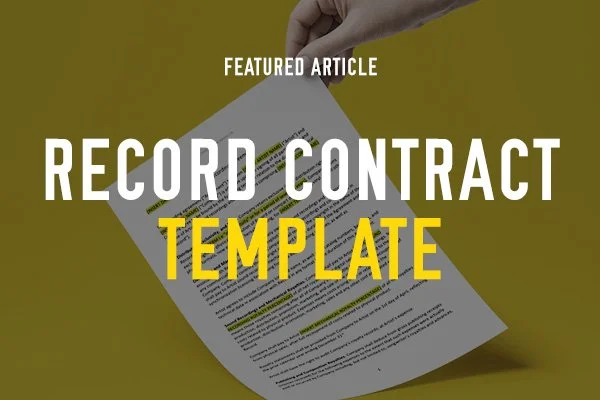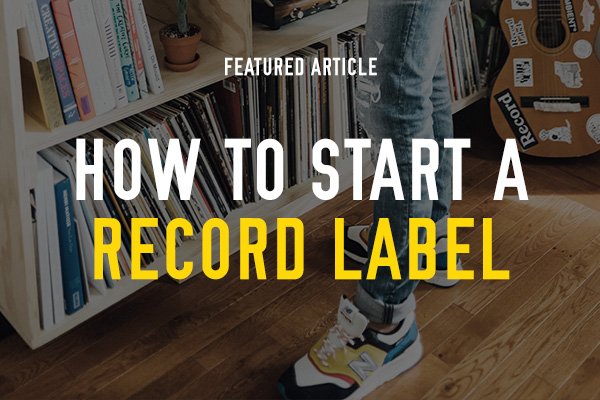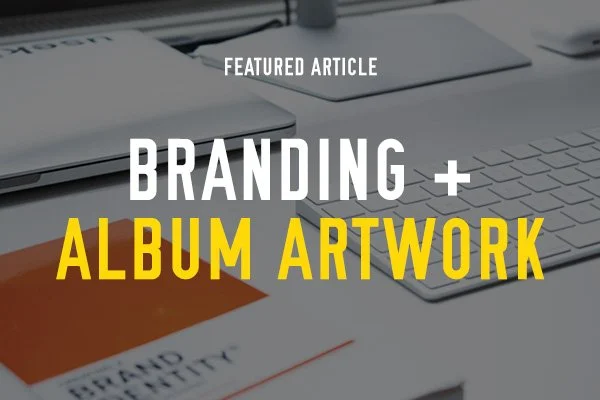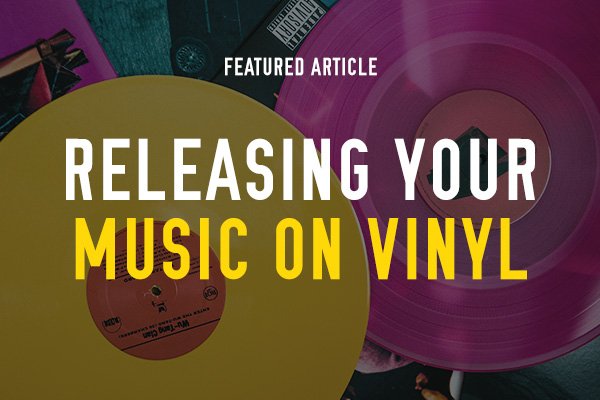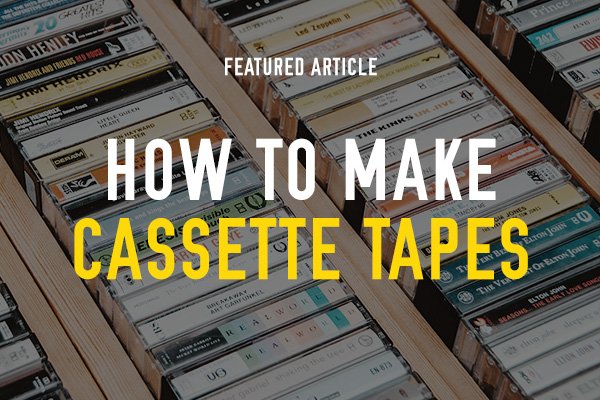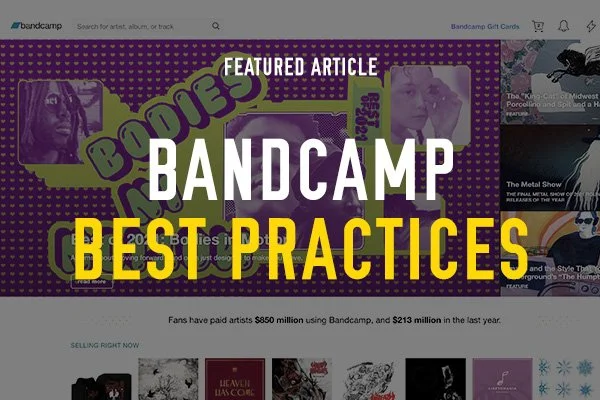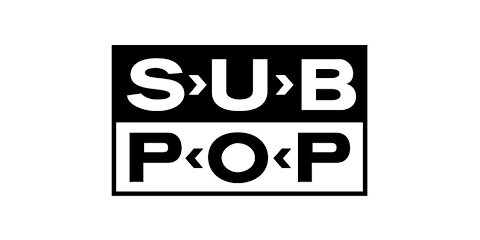
Should Record Labels
Own The Masters?
The Ownership of Masters in the Music Industry:
The Pros and Cons for Record Labels

In the complex and dynamic world of the music industry, the ownership of master recordings has emerged as a significant point of contention between record labels and artists.
The debate centers on whether it makes sense for record labels to retain ownership of the masters or if artists should have more control over their creative works.
In this article, we delve into the reasons behind both perspectives and shed light on the implications of this ownership dynamic.
Let’s talk about the Pros and Cons of Owning the Masters, or better yet let’s look at both sides of the argument…
Why it Makes Sense for Record Labels to Own the Masters
1. Strategic Investments and Trade-offs
Record labels often argue that they should own the masters as a result of upfront investments they make.
It's comparable to buying stocks in a company like Facebook – if you invest in a venture, you expect to see outsized returns, in perpetuity. Similarly, labels contend that if they fund an artist's production and promotion, they should have a stake in the future earnings of those master recordings.
Moreover, some artists willingly trade away these rights in exchange for advances or support, recognizing the value the label brings to their career.
2. Navigating Uncertainty in the Music Business
The music industry is inherently risky, with some releases soaring in popularity and others falling flat.
By owning the masters of various recordings, record labels can build a back catalog of revenue-generating assets. This consistent income stream not only offsets losses from underperforming releases but also fuels future signings and investments.
This approach is akin to financial diversification, ensuring stability even in the face of unpredictable market trends.
3. The Kate Bush Effect and Resurgence of Classics
Certain albums and songs have demonstrated the remarkable profitability potential years after their initial release.
The "Kate Bush Effect" refers to albums that continue to generate revenue long after their debut, much like how legacy artists' backcatalog songs find new life through platforms like TikTok.
Investors and record labels have realized that classic albums and songs can remain evergreen through streaming and frequent reissues, catering to both existing and future generations of music enthusiasts.
Why it Doesn't Make Sense for Record Labels to Own the Masters
1. Pioneering a New, Fairer Model
Critics of the traditional model argue that the time has come to redefine the artist-label relationship, that’s what indie labels do best!
They advocate for a fairer distribution of control and revenue, where artists maintain a greater stake in their own creative output.
This shift reflects a broader trend in the entertainment industry, where creators are seeking more equitable partnerships.
2. Unease in Artist-Label Relationships
Ownership of masters can create an uneasy dynamic between artists and labels.
Artists may feel trapped in agreements where they lose control over their own work, leading to frustration and a strained professional relationship. Even when the arrangement has been beneficial, an artist still may feel “trapped” which can strain the label/artist relationship, and impact future creativity.
This tension can ultimately hinder collaboration and creativity, impacting the quality of future releases.
3. Questioning Deserved Ownership
Some labels are called into question over whether they genuinely deserve to own the masters.
For instance, if a label hasn't contributed substantially to the production costs or lacks the promotional leverage to justify such ownership, it raises ethical concerns.
The question of whether the label's contribution justifies the extent of ownership becomes a central point of contention. Label’s shouldn’t automatically assume this position of power based solely on “the old way of doing things.”

WATCH THIS EPISODE
and catch other videos on our YouTube Channel
Conclusion
So, what should your record label do with “owning the masters”?
In the process of crafting this article and episode, I reached out to respected figures within the record label and music industry. The insights I gleaned shed light on the prevailing trends in agreements and arrangements that have emerged of late.
In many instances, the prevailing approach involves record labels obtaining a "license" for the masters from the artists for a stipulated period.
This term spans from 2 to 15 years, with a 5-year duration being the most common. Throughout this licensing period, the record label holds exclusive rights to release, promote, and distribute the master recordings.
As the term concludes, artists are presented with a choice: to regain their masters by giving the label approximately 90 days' notice or to maintain their association with the label on a month-to-month or yearly basis.
Nevertheless, there remain select scenarios in which record labels opt to retain indefinite ownership of the masters. Such circumstances tend to arise when labels have made substantial financial investments in artist development, production, and marketing efforts, thereby justifying their extended ownership.
Just as a balanced 50/50 profit split stands as a healthy and effective approach to working with artists in terms of royalties, a short-to-medium term licensing arrangement for artists' recordings might indeed represent a mutually beneficial and ethically sound solution.
By exploring and adapting to these evolving dynamics, both artists and labels can foster prosperous and respectful collaborations within the ever-evolving landscape of the music industry.

Free Budget Template
for Record Labels

RECORD LABEL
ACADEMY
Simple strategies that will help you
earn a living telling people about great music!

RECORD LABEL
ACADEMY
Instant Lifetime Access to all our courses, books, and templates!
-
How to Start a Record Label (Online Course)
Record Label Marketing Strategies (Online Course)
Record Label Decision Tool (Online Course)
Profitable Record Label (Online Course)
All 10 Micro Courses
All 8 Micro eBooks
How to Start a Record Label (eBook)
Record Label Marketing Strategies (eBook)
Tons of bonus templates and extra resources
BEST VALUE
*
BEST VALUE *
RECORD LABEL
ACADEMY
Instant Lifetime Access to all our courses, books, and templates!
-
How to Start a Record Label (Online Course)
Record Label Marketing Strategies (Online Course)
Record Label Decision Tool (Online Course)
Profitable Record Label (Online Course)
All 10 Micro Courses
All 8 Micro eBooks
How to Start a Record Label (eBook)
Record Label Marketing Strategies (eBook)
Tons of bonus templates and extra resources

Helpful Articles for Record Labels

“Owning the Masters” FAQs
1. What does it mean for a record label to "own the masters"?
When a record label "owns the masters," it means they possess the rights to the original recordings of an artist's music. These recordings capture the raw performances and audio elements exactly as recorded in the studio.
4. What's the argument against record labels owning the masters?
Critics suggest a fairer model is needed to address imbalances in the artist-label relationship. They emphasize artists' creative control and seek a more equitable distribution of revenue.
2. Why do record labels argue for ownership of the masters?
Record labels assert ownership based on investments made in production and promotion. They argue that owning masters provides a stake in future earnings and helps offset losses from less successful releases.
5. How does master ownership impact artist-label relationships?
Ownership can strain relationships as artists may feel trapped in agreements that limit their creative control. This tension can hinder collaboration and influence the quality of future releases.
3. What's the significance of the "Kate Bush Effect" in master ownership?
The "Kate Bush Effect" refers to albums and songs that remain profitable long after their release. This phenomenon illustrates the enduring revenue potential of classics, which are often revisited through platforms like TikTok and streaming services.
6. Are there situations where record labels may not deserve master ownership?
Yes, if a label hasn't significantly contributed to production costs or lacks the promotional leverage to justify ownership, ethical concerns arise regarding their rights to the masters.
Other Record Labels Podcast
Featuring interviews with…









